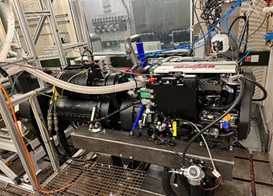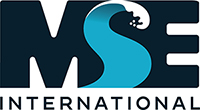HyCap Drive project offers possibilities for other land-port applications

The MSE-led HyCap Drive project which was funded by Innovate UK's CMDC 4 Competition has been researching the use of supercapacitors as an energy store for marine hybrid drive configurations. The project built and tested a prototype unit, at the University of Birmingham, comprising an existing parallel hybrid gearbox and electric motor, coupled with an assembly of supercapacitor modules and associated DC-DC converter and variable frequency drive.The rig was tested under a number of marine use-cases, in order to assess fuel savings, weight savings, improved efficiencies, commercialisation prospects and scale-up potential.
The premise of the project was to address a number of barriers to workboat decarbonisation including the current lack of viable retrofit solutions to decarbonise existing vessels, concerns about the fire risk of lithium batteries, weight and volume issues of alternative low/zero carbon solutions and finally the lack of independent data about how novel drives would perform on real vessels and the resulting cost-of-ownership.
The project has now been completed and while all the aims were addressed, some areas of uncertainty remain. Whilst the prototype test rig did successfully demonstrate the use of supercapacitors to convert the power, it did also highlight that the energy losses were larger than expected. In addition, the extra weight and cost of the HyCap drive proved unattractive for the retrofit market, and while the supercapacitors do have a much lower fire risk, other new energy storage options such as Lithium Ion Capacitors (LIC) now appear to be more attractive than conventional Double-Layer Supercapacitors.
One of the conclusions of the HyCap Project is that supercapacitors can offer worthwhile benefits to vessels operating under high cyclic load conditions, for instance search and rescue vessels, where the increased engine durability is likely to be a significant benefit but that this is a limited commercial market. The project has however highlighted that the techbnology may be better suited to other land-based maritime applications such as port cranes and electrified reach-stackers where a combined Lithium Bttery and LIC arrangement would be well-suited.
HyCap Drive was part funded by the Clean Maritime Demonstration Competition (CMDC) 4 funding from Innovate UK.
The project partners for HyCap were:
MSE International, University of Birmingham, Marine & Industrial Transmissions (MIT) Ltd, Aluminium Marine Consultants, and
UK Harbour Masters Association.
To be kept up to date with other projects and activities in the maritime decarbonisation sector please subscribe to our Maritime Decarbonisation Interest Group here.



